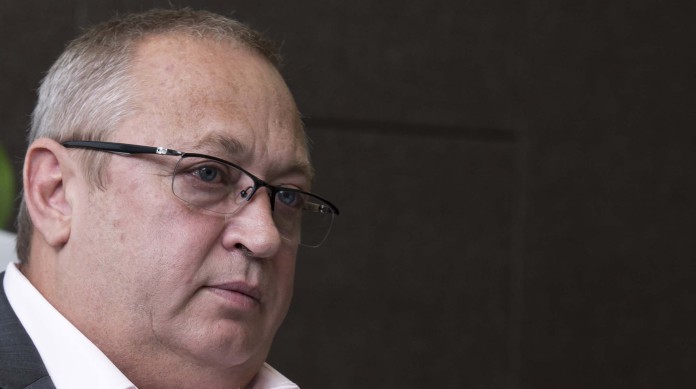
SIBANYE-Stillwater CEO, Neal Froneman, said he could not “speculate with shareholder money” by approving a new platinum group metal (PGM) expansion without a fundamental market shift in the principal metal.
The majority of South African PGM producers make platinum more than any of its sister metals, such as palladium and rhodium. From a total revenue perspective, however, platinum is a minority contributor because its market has been over-supplied, or runs a slim supply deficit.
“For PGMs, the market needs to be receptive to a growth in platinum that is also fundamental,” said Froneman when asked at the online conference, the Joburg Indaba, on the likelihood of the firm approving the development of the K4 project.
K4 was previously owned by Lonmin, the former UK-listed firm that Sibanye-Stillwater bought last year, renaming the assets Marikana. The existing K4 shaft was closed by Lonmin but it would be easy to switch on especially as the capital has been sunk. Lonmin planned a 250,000 to 300,000 ounces of 4E annually and a reserve of 12 million oz.
“The economic parameters for the K4 project are really spectacular; very significant internal rates of return. But I can’t speculate with shareholders’ money. It is something I wish I could announce, but it’s also based on the right actions from government,” he said.
Froneman has been a vocal critic of the South African government’s handling of the economy, saying a toxic combination of regulatory uncertainty, corruption and political meddling have unseated confidence in new investment.
Commenting on growth and expansion, Froneman said it made sense to be geographically diverse, partly as the post-Covid-19 world was conducive to it.
“Geographical diversification is something that is certainly going to form the mix of companies when they consider operating environments in pandemics like this,” he said.
“One aspect [of Covid-19] for those of us who are close to the end user is that supply chains across the world have been hugely disrupted. There will be a move to supply chains being more national than international owing to the disruptions to the very industries that they feed,” he said.
“You are going to find countries like the US being more aware of strategic minerals and making sure their industries can survive a pandemic like this. So, that’s good from a positioning point of view and influences strategy as well.”
Froneman currently operates Sibanye-Stillwater from his home office in Florida in the US. Asked if he was running the company ‘in absentia’, he quipped: “The company is probably running better than before.
“Virtual working allows us to employ people around the world, and only time zone issues become an issue. We still hold specific meetings. It doesn’t matter where you sit, and going forward won’t make a difference. You just need to be in position where you don’t extend days, and not making them too long.”









